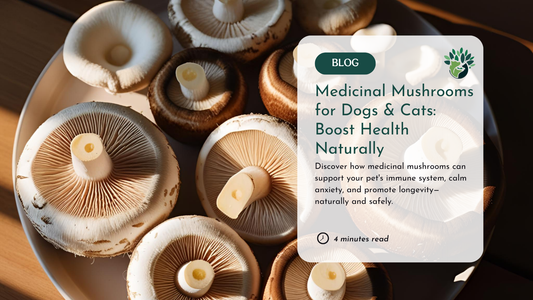The Pet Loss Symposium brought together experts, counselors, and pet parents to address the often-overlooked, deeply personal journey of grieving for a beloved animal companion. Through thoughtful discussions, personal stories, and expert guidance, the event offered actionable strategies and emotional support to navigate the complex emotions tied to pet loss.
Understanding the Depth of Pet Loss
The loss of a pet is unique in its emotional impact, often leaving pet parents grappling with profound grief that society sometimes overlooks. Melissa Natanson, a certified holistic pet health coach, set the stage by highlighting the unspoken depth of the human-animal bond. She emphasized that grieving a pet is not "lesser" than grieving a human loved one, urging attendees to honor their feelings fully.
Melissa encouraged attendees to recognize their grief as valid, sharing that the nonjudgmental and unconditional love pets provide often makes their loss even harder to process. In many ways, pets are our silent confidants, making their absence deeply felt in the rhythm of daily life.
Honoring the Grieving Process: A Holistic Perspective
Dr. Ruth Roberts, an integrative veterinarian with over three decades of experience, brought her expertise and personal stories to the forefront. Dr. Roberts explained how her experiences with loss have reshaped her veterinary practice, transforming the traditionally clinical process of euthanasia into a sacred ritual. She stressed that honoring a pet's passing is as important as cherishing their life.
Key insights from Dr. Roberts included:
- The Sacred Act of Letting Go: Euthanasia, when approached with intention and compassion, can be a final gift of love to a suffering pet.
- Creating Rituals: Lighting a candle, saying a prayer, or planting a tree can serve as meaningful acts of remembrance.
- Finding the Right Time: Dr. Roberts reminded attendees that grief has no timeline. Pet parents must allow themselves the grace to grieve on their terms.
Navigating Complex Emotions: Guilt, Grief, and Acceptance
One of the most impactful sessions was led by grief counselor Leigh Ann Gerk, who specializes in supporting individuals through pet loss. Leigh Ann addressed two of the most challenging aspects of pet loss: guilt and anticipatory grief.
Coping with Guilt
Guilt often accompanies pet loss, especially in cases where euthanasia was necessary or pet parents feel they "should have done more." Leigh Ann offered these strategies:
- Reframing Negative Thoughts: Shift from "What if I had done this differently?" to "Even if I did everything perfectly, this loss would still be painful."
- Journaling Exercises: Writing letters to your pet or listing joyful memories can help reframe the narrative and celebrate their life.
- Compassion Toward Yourself: Leigh Ann stressed the importance of self-forgiveness, reminding pet parents that they always acted with love and the best intentions.
Anticipatory Grief
For those caring for terminally ill pets, anticipatory grief can be overwhelming. Leigh Ann advised pet parents to focus on creating positive, meaningful moments with their pets, even during the end-of-life stage. Simple activities, such as gentle walks, favorite treats, or quiet cuddle time, can create lasting memories and ease the pain of impending loss.
Stories of Transformation: Finding Meaning in Loss
The symposium featured several moving personal stories, demonstrating the transformative power of grief.
Sunny Gandhara’s Journey
Sunny, a holistic pet health coach, shared her deeply personal story of losing her dogs, Miso and Scooby, and finding hope in her new companion, Nacho. Sunny described how grief initially left her shattered, but she eventually channeled her pain into honoring her pets’ legacies by helping others navigate pet loss.
Sunny’s story was a powerful reminder that grief, while painful, can also inspire growth, connection, and purpose.
Holistic Comfort Measures for Pets and Pet Parents
The symposium also provided practical advice for supporting both pets and pet parents during challenging times:
For Pets
- CBD and Herbal Support: Many pets benefit from CBD products to alleviate pain, anxiety, or other symptoms during end-of-life care.
- Sensory Enrichment: Activities like "scratch-and-sniff" walks or exposure to comforting scents can provide mental stimulation and happiness.
- Dietary Adjustments: Offering smaller, more palatable meals can help terminally ill pets enjoy mealtime.
For Pet Parents
- Counseling Resources: Leigh Ann emphasized the importance of finding a grief counselor or support group to process emotions.
- Creative Outlets: Writing, creating memorial art, or putting together a photo album can help preserve cherished memories.
- Community Support: Joining pet loss support groups provides a space to share experiences and receive encouragement.
Bridging Holistic Practices with Traditional Veterinary Care
A recurring theme throughout the event was the integration of holistic practices with conventional veterinary care. Dr. Roberts highlighted how holistic pet health coaching can empower pet parents to advocate for their pets while complementing the work of veterinarians. By blending dietary changes, natural supplements, and compassionate care, holistic methods create a well-rounded approach to pet wellness and end-of-life care.
A Call for Compassionate Conversations About Pet Loss
The symposium concluded with a collective commitment to normalize discussions about pet loss. Melissa Natanson and Dr. Roberts both emphasized that healing often begins when pet parents feel seen and supported. By fostering a culture of empathy, we can create a world where grieving pet parents are no longer isolated in their sorrow.
Moving Forward: Building a Legacy of Love
The Pet Loss Symposium reminded attendees that grief is not something to "get over" but rather a journey to integrate into one's life. By cherishing the memories of our pets, honoring their lives, and seeking support when needed, we can turn pain into purpose and continue to celebrate the unconditional love they gave us.
Whether through storytelling, community building, or practical tools, the symposium left pet parents equipped with the resources to face their grief and carry their pets' memories forward.















